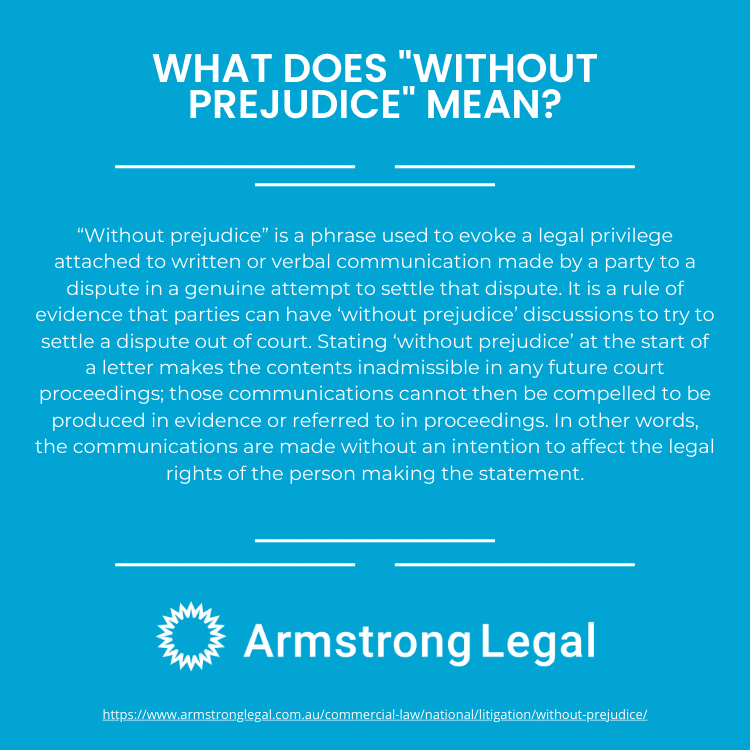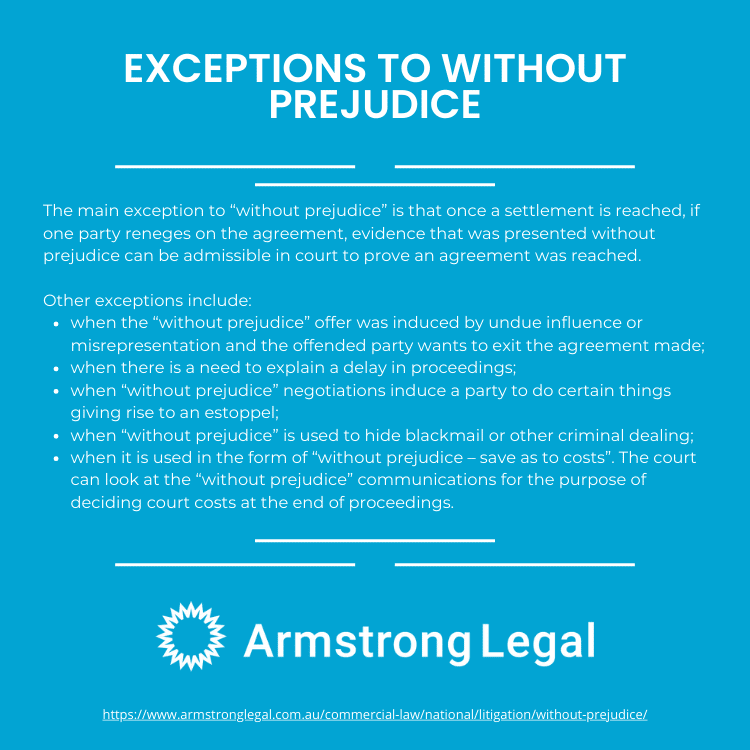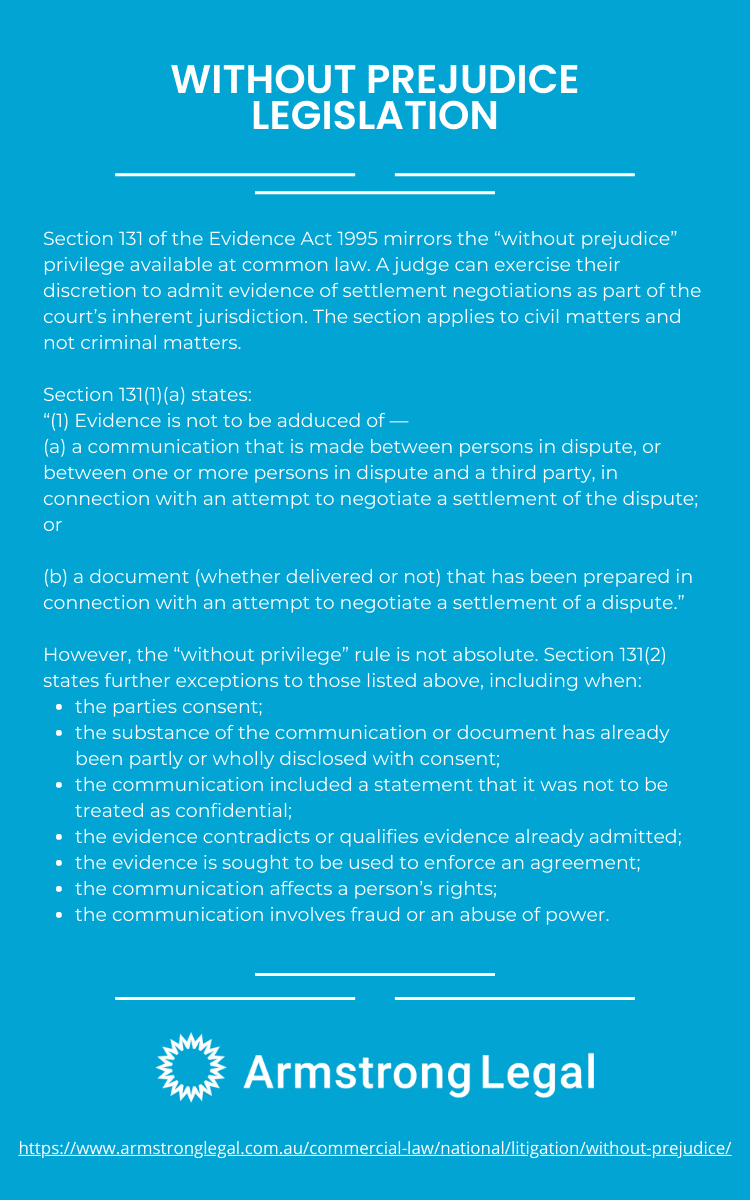What Does "Without Prejudice" Mean?
“Without prejudice” is a phrase used to evoke a legal privilege attached to written or verbal communication made by a party to a dispute in a genuine attempt to settle that dispute. It is a rule of evidence that parties can have ‘without prejudice’ discussions to try to settle a dispute out of court. Stating ‘without prejudice’ at the start of a letter makes the contents inadmissible in any future court proceedings; those communications cannot then be compelled to be produced in evidence or referred to in proceedings. In other words, the communications are made without an intention to affect the legal rights of the person making the statement.
Why is “without prejudice” used?
The ‘without prejudice’ privilege means parties to a dispute can make concessions and promises without fear that their words will be used later in court. This promotes productive discussion, allowing parties to work openly and freely towards a compromise without the risk of their statements being used against them should negotiations fail.
Negotiations are taken to be without prejudice without this being expressed, but in the interests of clarity, documents and correspondence are often marked with the phrase.
Context
The test for determining when the protection applies is how the phrase “without prejudice” is used – the communication must be made solely in connection with an attempt to negotiate a dispute, and for no other purpose.
Three elements are necessary for the privilege: a dispute, a genuine attempt to resolve the dispute, and the making of assertions in that attempt. If all three elements are proved, the privilege applies to both parties and consent is required from both parties for the privilege to be waived. However, “without prejudice” does not necessarily extend to every word spoken during negotiations, and words and conduct that constitute criminal conduct cannot be kept from a jury by invoking that doctrine.
In Davies v Nyland (1975) 10 SASR 76, Justice Wells famously expressed the view that the phrase is often misconceived:
“[I]n some quarters of the community there is a belief, amounting almost to a superstitious obsession, that the expression “without prejudice” is possessed of virtually magical qualities, and that anything done or said under its supposed aegis is everlastingly hidden from the prying eyes of a Court.”
Exceptions
The main exception to “without prejudice” is that once a settlement is reached, if one party reneges on the agreement, evidence that was presented without prejudice can be admissible in court to prove an agreement was reached.
Other exceptions include:
- when the “without prejudice” offer was induced by undue influence or misrepresentation and the offended party wants to exit the agreement made;
- when there is a need to explain a delay in proceedings;
- when “without prejudice” negotiations induce a party to do certain things giving rise to an estoppel;
- when “without prejudice” is used to hide blackmail or other criminal dealing;
- when it is used in the form of “without prejudice – save as to costs”. The court can look at the “without prejudice” communications for the purpose of deciding court costs at the end of proceedings.
Legislation
Section 131 of the Evidence Act 1995 mirrors the “without prejudice” privilege available at common law. A judge can exercise their discretion to admit evidence of settlement negotiations as part of the court’s inherent jurisdiction. The section applies to civil matters and not criminal matters.
Section 131(1)(a) states:
“(1) Evidence is not to be adduced of —
(a) a communication that is made between persons in dispute, or between one or more persons in dispute and a third party, in connection with an attempt to negotiate a settlement of the dispute; or
(b) a document (whether delivered or not) that has been prepared in connection with an attempt to negotiate a settlement of a dispute.”
However, the “without privilege” rule is not absolute. Section 131(2) states further exceptions to those listed above, including when:
- the parties consent;
- the substance of the communication or document has already been partly or wholly disclosed with consent;
- the communication included a statement that it was not to be treated as confidential;
- the evidence contradicts or qualifies evidence already admitted;
- the evidence is sought to be used to enforce an agreement;
- the communication affects a person’s rights;
- the communication involves fraud or an abuse of power.




